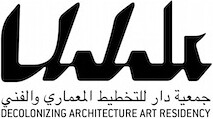Refugee Heritage continues to destabilize loaded definition of refugeness, exile, heritage, permanency, and temporariness through public discussions, an exhibition, academic course, and series of responses.
Over the next three weeks, responses by Khaldun Bshara, Ilana Feldman, Pelin Tan, Sari Hanafi, Ismae’l Sheikh Hassan, and Anooradha Iyer Siddiqi will be published on e-flux conversations. Drawing parallels with refugee conditions in Africa, Asia and Europe, responses demystify the depoliticazion of humanitarism, speculate on the radical transformation of UNESCO, and call for the urgent protection of refugee camps and refugees from state violence.
On July 19, in Ramallah, Palestine, DAAR and Riwaq have jointly invited activists, politicians and intellectuals from West Bank Refugee camps to continue to discuss the implication of nominating Dheisheh refugee camp as heritage site and the modality to recognize the historical importance of refugee camps not as an impediment to the right of return, but on the contrary, as a step towards it.
On August 12 and 13, “A Century of Camps: Refugee Knowledges and Forms of Sovereignty Beyond the Nation-State” will take place in Kassel as a part of Documenta 14’s public program The Parliament of Bodies. The event will explore heritage and knowledges produced within refugee camps in Beirut, Calais, Lesbos and Zaatari. The discussion on the first day will feature a keynote lecture by Elias Khoury and be centered on the question: who writes the history of a camp and the proposal for nominating Dheisheh Refugee Camp as World Heritage site?
Refugee Heritage will be exhibited for the first time as a part of Permanent Temporariness, a retrospective exhibition of Sandi Hilal and Alessandro Petti, curated by Salwa Mikdadi, at the New York University Abu Dhabi Art Gallery, opening on February 24, 2018. The exhibition will serve as a base for the advanced course in Decolonizing Architecture taught by Alessandro Petti at the Royal Institute of Art in Stockholm.


